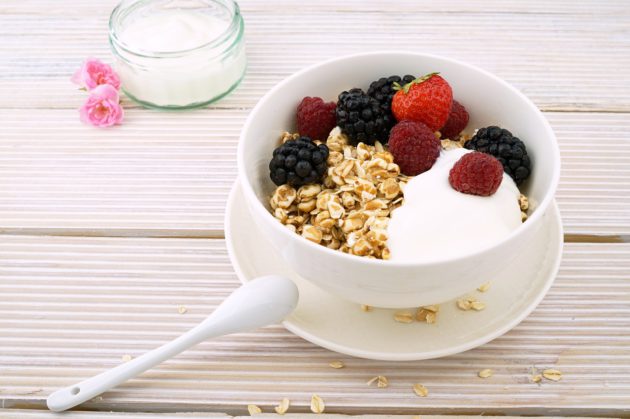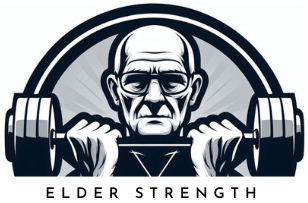Probiotics are a common supplement these days and for a good reason. But what is the best probiotic for seniors? Read on to find out.
You have surely seen the news headlines stating things like “the gut is the second brain” or “intestinal microbes are making you depressed” and many other.
It took western medicine incredibly long to establish the fact that the hundreds of millions of microorganisms living in our intestines actually have a crucial role in our health and well-being.
Gut Bacteria Matter
Before recent discoveries, it was simply thought the microbes in our bowels were simply responsible for digesting food and keeping away pathogens.
In recent decades it has been well-established that not only are the microbes incredibly important for healthy metabolism but that they actually control everything from our mood to our hormonal function.
The microbes of our intestines consist of different kinds of bacteria and yeasts. The whole mass of microorganisms within your gut can weight several pounds and is referred to as the gut flora and consists of billions of individual microbes.
It’s not surprising that they also play a significant role in food digestion, immune health and overall functioning of your digestion. If you suffer from digestive issues like constant bloating, constipation or diarrhea it’s possible your gut flora is not in balance.

You see, there are beneficial and not so beneficial microbes that can colonize your gut and all the microbes fight for survival with each other. The winners get to keep the house, which is your gut. If the winners consist more from not so beneficial microbes, it’s possible to have digestive issues.
Diet Is Important For Gut Flora
It has been even proven that some harmful micro-organisms are associated with metabolic diseases like type 2 diabetes, atherosclerosis and even some forms of cancer.
This might seem frightening, but it’s important to know this so you can do your best to improve your gut flora. The most important part of a healthy gut flora is your diet.
Your diet can both introduce beneficial bacteria to the gut and reduce the amount of harmful microbes. What you eat is what your gut microbes eat essentially.
It might not come as a surprise to you that things like red meat, sugar and highly processed foods tend to increase the amount of harmful or undesirable microbes while vegetables, fiber and slowly digesting carbohydrates like tubers and whole wheat tend to feed the beneficial microbes.
So something resembling the Mediterranean diet is likely very beneficial for your gut flora. This might help to explain the health benefits of the Mediterranen diet for seniors.
Dairy is a bit mixed topic as regular milk, especially full fat, seems to have some negative effects while yogurt and other forms of cultured dairy products are actually one of the best sources of beneficial microbes.
The most astonishing discovery is that the gut is actually connected to the brain through several mechanisms. The intestines communicate with the brain through the vagus nerve. The microbes also form neurotransmitters like serotonin and dopamine as well as several other chemicals that affect your brain function.
So keeping your gut healthy likely helps with keeping your brain healthy!
What are probiotics?
Probiotics are specific strains of the same bacteria and yeasts that can be found in our guts. These microbes can be found in several fermented and cultured foods like yogurt, kefir, sauerkraut, pickled cucumbers, combucha, olives and many others.

Probiotics are also commonly used as supplements with specific strains for specific functions. Common uses include prevention and treatment of diarrhea, improving gut motility and regularity and improving immune function.
These are also the only uses that probiotics have been medically and scientifically accepted and proved to be beneficial for. There are several other reasons probiotics have been used but the science on these uses is still inconclusive due to lack of research.
The uses include weight loss, improving depression, improving cognitive function, reducing inflammation, improving hormonal function and many others.
The most common families of microbes in probiotics include:
Lactobacillus
Lactobacillus is a genus of anaerobic bacteria that convert sugars to lactic acid. They are abundant in the body and can be found at a number of body sites like the digestive system, urinary system, and genital system.
Lactobacillus has a mutualistic relationship with the human body. It protects us against invasion from harmful bacteria and other pathogens while we provide a source of nutrition to them. Lactobacillus strains are the most common forms of probiotics and they are found especially in cultured dairy products like yogurt. Their beneficial effects include treatment of diarrhea, vaginal infections and eczema.
Bifidobacterium
Like lactobacillus, Bifidobacterium are a genus of anaerobic bacteria. They are commonly found in the digestive tracts of all mammals including humans. They are close relatives to the Lactobacillus and were formerly known as Lactobacillus bifidus but have been since categorized as a completely different species.
One of the key metabolic functions of Bifidobacterium is fermentation of carbohydrates. Clinically Bifidobacterium have been studied for treating ulcerative colitis. There is some evidence that different strains of Bifidobacterium may have beneficial health effects including regulation of intestinal microbial homeostasis, reducing inflammation, protection from pathogens and production of vitamins.
Streptococcus
Streptococcus is a genus of bacteria that are better known for the pathogenic strains that cause diseases like pharyngitis, cellulitis, dental caries, pneumonia, and urinary tract infections.
Streptococcus thermophilus is a common strain that is used to make yogurt but it has also been shown to help with antibiotic induced diarrhea and has even been researched for cancer prevention.
Saccharomyces
Saccharomyces is a genus of fungi that includes many species of yeast. Just like bacteria, there are beneficial and not so beneficial strains of yeast and other fungi. Saccharomyches boulardii is a form of yeast that is commonly used as a probiotic.
The above genuses of microbes are just some of the most common microbes used as probiotics. There are hundreds of thousands of different species of microbes in your gut and some of them have more effects on your health than others.
Not to make things too simple, all of the above microbe families have several species and strains that have differences in their effects. For example Lactobacillus rhamnossus GG is different from Lactobacillus rhamnosus PB01. They are both in the Lactobacillus family and the species rhamnossus but different strains.
Lactobacillus rhamnossus GG is extensively studies for its beneficial effects in preventing antibiotic diarrhea and treating Clostridium difficile infection while Lactobacillus rhamnosus PB01 has been studied for its benefits in urogenital infections in women and pain.
So as you can see the species and strain of the probiotic matter and you need to know what you are buying or you might not get the results you were looking for.
Benefits of probiotics for seniors
The most significant benefits of using probiotic supplements and dietary sources for seniors are gastrointestinal function improvement. Probiotics can help both diarrhea and constipation, something many seniors suffer.
There is some evidence that certain strains of probiotics can reduce your risk of heart disease by improving blood cholesterol levels and reducing blood pressure. As shown by this study.
Probiotics may also help you improve your immune system. This is because the beneficial microbes in probiotics inhibit the growth of harmful gut bacteria (study). Probiotics have been shown to boost the immune system by increasing natural antibodies and immune cells (study).
Probiotics may also improve cognitive function, and mood and reduce stress. Both very useful functions for seniors. Especially if you are suffering from memory issues caused by age-related cognitive decline. The gut and the brain are connected as shown by many studies (study, study). It’s no wonder probiotics may improve mood and reduce depression and inflammation (study).
Probiotics can also help you reduce body fat and maintain a healthy weight. It’s speculated this is partly because some probiotics can reduce the absorption of fat in the intestine. But also because metabolic effects like making you feel full longer and affecting hormones that affect metabolism (study).
The Effects Of Probiotics Vary
It’s important to realize that not all probiotics have the same effect fat loss for example and some can even cause weight gain like shown in the case of Lactobacillus acidophilus. (study).
Here’s a great explanation by dicentra YouTube channel (YouTube embed. Content not created or owned by ElderStrength.com):
As you can see, probiotics can have many beneficial effects. It’s important to realize however these effects are likely very subtle and on many of the studies the results have been somewhat inconclusive. They suggest a high individual variability.
That doesn’t mean that probiotics are useless though. It just means they are no substitute for a healthy diet and exercise. But more of a boost for overall health. Some people can even have dramatic improvements in some parts of their health. But you shouldn’t take them with such expectations.
Are probiotics safe for seniors?
Generally probiotics are very safe as they are basically bacteria that likely already colonize your intestinal tract or at least should be colonizing it.
However, some probiotics can cause uncomfortable side effects like gas, bloating that should pass in a couple days. We are individuals and so are our gut flora. So it’s possible to have some more serious side effects like diarrhea or even allergic reactions.
This is why it’s important to discus taking probiotics with your doctor so they can evaluate potential side effects with your drugs, known illnesses and other contraindications.
This is especially important if you suffer from any kind of immunodeficiency or have otherwise compromised immune system as there have been reports of infections from probiotic organisms in immunocompromised people.
It’s also important to realize that the research on probiotics and the gut flora is still in its infancy and we don’t really know that much about the potential long term effects of probiotic use. There is no guarantee that probiotics have any physiological effects and if they do, they might not always be beneficial.
In my opinion there are better supplements to invest in. I especially like creatine as it’s been well researched and has several proven benefits. It’s also dirt cheap. You can read more about creatine in the articles Creatine for seniors. Is it useful?, Best Energy Supplements For Seniors and The Best Workout Supplements For Older Men [Complete Guide].
For gut function, I would recommend psyllium instead of probiotics. You can read more about it in the articles Best Fiber Supplement For Seniors [With Recommendations] and Best Constipation Remedies For Seniors.
I would even recommend a high-quality protein supplement before a probiotic supplement.
What makes a good probiotic
For a probiotic supplement to be useful it needs to have a few important factors included.
Firstly, the strains of microbes used in the probiotic supplement should be well researched with known beneficial effects. There is no point in eating bacteria that might have no effect or the effects of which are not known very well.
Secondly, there should be several different strains of microbes in a high-quality probiotic. This is because probiotics often work symbiotically and having several different strains improves the likelihood of colonizing your gut with a new beneficial bacteria strain.
Thirdly, there needs to be enough of all of the different microbes and they need to be stored in a biologically active way. There is no point in eating probiotic supplements that have only a little amount of the bacteria, especially if they are already dead.
High-quality probiotic supplements use manufacturing and storing methods that ensure there are millions of living organisms in one pill and the capsule is designed so that they can survive your stomach acid and actually reach your bowels.
Find out more about what to look for in a probiotic.
What Is The Best Probiotic For Seniors?
Disclaimer: This recommendation contains affiliate links. I will earn a small commission if you buy through the link. Helps to keep the site running, so thank you if you will.
So what is the best probiotic on the market for seniors? My recommendation is the Genuine Health advanced gut health probiotic (affiliate link):

It is a very high-quality probiotic supplement that includes 15 strains of microbes with scientifically researched evidence of positive health effects.
The amount of microbes at 50 billion CFUs is very high so you won’t be paying for filler here. What’s even more important is that they list the amount of each individual strain, making sure there are actually significant amounts of each microbe strain in the supplement.
There are no commonly known allergens like eggs, milk, mustard, peanuts, seafood (fish, crustaceans, shellfish), sesame, soy, sulfites, tree nuts, and wheat in the probiotic. So it should be safe for most people with food allergies.
The capsule is designed so that it will withstand the digestive acids of the stomach and dissolve in the gut. This ensures that the microbes actually reach your intestines alive and ready to colonize!
Conclusion
I hope you found my tips for the best probiotic supplements for seniors useful. If you decide to test them I hope you will find them beneficial for your health. If you have any questions, don’t hesitate to ask in the comments section below!
Our gut truly is our second brain and it seems we have only scratched the surface on the gut flora and its effects on our health. It also seems that many ancient forms of medicine understood the connection between our gut and the brain better than modern medicine.
Fortunately, progress is being made in the research practically daily. And in the future, we might have things like individually tailored diets for our specific gut flora. Or medicines that target specific bacteria in the gut.
It has been speculated that modern-day ailments like obesity, type 2 diabetes, coronary heart disease, and even depression all might be linked with our gut flora. So there are great possibilities with this research.
For now, eating a high-quality probiotic supplement might help you improve your health. Unfortunately, there are no guarantees and you will have to try them yourself to find out if you find them beneficial.
If you are interested in strength training and health tips for seniors, please subscribe to my newsletter and bookmark our site for future reference.
See you next time!



Very helpful and knowledgable content!
Thank you for the kind comment Ryder! We do our best to provide useful information.
What is best prebiotic that men an women can use over 60 years age
Hey Josephine! Most probiotics don’t have specific age groups. Most of the probiotics that are claimed to be for certain age groups are just for marketing purposes. So I recommend that if you want to try a probiotic supplement, try something from a reputable brand and with a good reputation. I also recommend you talk to your doctor before introducing a probiotic to your diet to rule out any contraindications.
my dad is 87 and since a simple prostate surgery 4 months ago he is losing strength and
weight, he eats three meals a day ,has to watch closly his diet due to recurring diareaha, he has had to self catherise, ive read that probiotics can e
reduce inflamation in the prostrate. is there a partt
icular type to look for?
Sorry to hear about your dad’s situation David. I can’t give you any medical advice and this sounds like a situation that shouldn’t be treated with supplements. It’s my understanding that sometimes probiotic supplements and food can help recover from diarrhea that is caused by antibiotics but if there is an active infection or problems with immune function, they might also make things worse. I recommend you consult a medical professional and I hope everything turns out well soon for your father. Surgery can take a toll and recovery can be slow at his age but the weight loss and recurring diarrhea is definitely something that shouldn’t be taken lightly in my opinion.